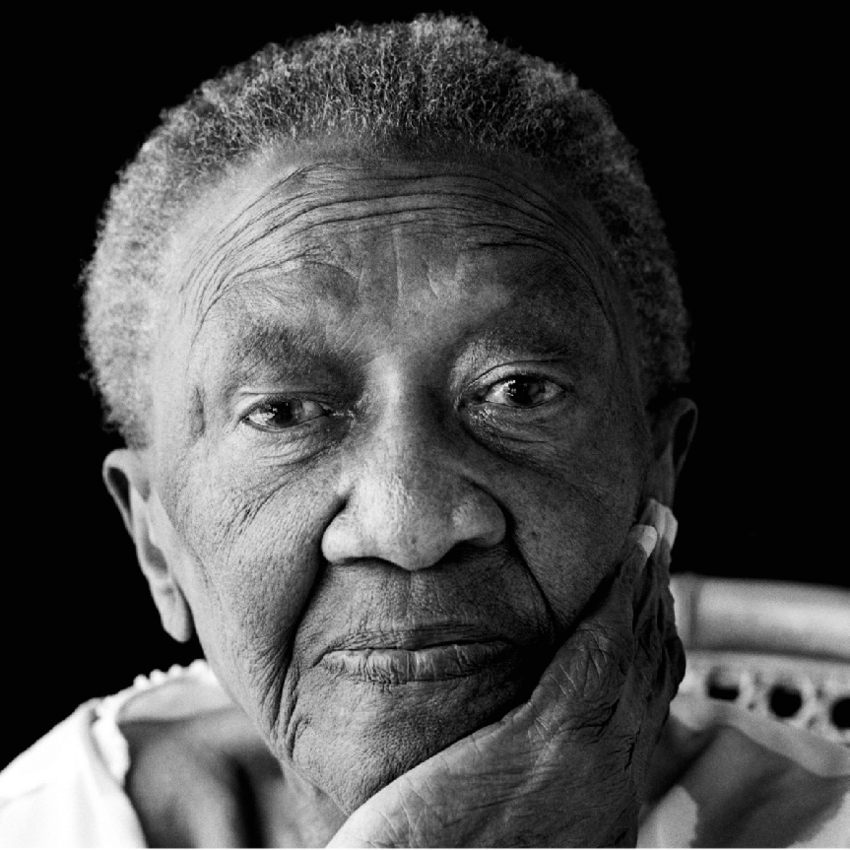Award-Winning Writer And Campaigner for Women’s Rights In Apartheid South Africa
By Shola Adenekan
Ellen Kuzwayo, who has died aged 91 from complications from diabetes, was a stalwart campaigner against apartheid in South Africa and a tireless fighter for women’s emancipation.
Popularly known as “Ma K”, she was a teacher, social worker, community leader and mentor to many. In 1994, at 79, she was elected as an ANC member of South Africa’s first multiracial parliament.
Kuzwayo came from a family with strong ANC ties; as a young woman, she used to carry her father’s bag at annual conferences.
In the 1940s, she joined the likes of Nelson Mandela, Walter Sisulu and Oliver Tambo in forming the militant ANC Youth League, and served as its secretary.
The organisation later transformed into Umkhonto we Sizwe (Spear of The Nation), the guerrilla faction of the ANC. Kuzwayo was present in 1936 when Mina Soga moved a motion to found the National Council of African Women.
Kuzwayo was born into a privileged black family on a farm in the Thaba Nchu district of what was then the Orange Free State.
Her father, Philip Merafe, was a prominent Sowetan businessman and ANC activist; her maternal grandfather, Jeremiah Makgothi, had been a leading member of the South African Native National Congress, a precursor of the ANC.
As a child, Kuzwayo had not, she said, experienced white oppression. But after her mother died and the farm was seized and allocated to white farmers, she found herself in an uncertain and menacing world.
She was educated at St Francis’ College, and trained as a teacher at Lovedale College, Fort Hare, graduating in 1936 with the highest teacher training qualification then available to a black person.
She gave up teaching in 1952 when the Nationalist government introduced the Bantu Education Act, which cut back opportunities for black education.
Kuzwayo said she did not have the strength or courage to teach her pupils “what appeared to be very poisonous to their minds”.
Now a mother, she returned to higher education to train as a social worker at the Jan Hofmeyr School of Social Work, where she shared a bench with fellow student Winnie Mandela.
She refused to work with government agencies, collaborating instead with voluntary organisations such as the YWCA, where she worked with women in deprived communities in the Transvaal.
She was at the forefront of a campaign against infant mortality, and promoted cottage industries.
Her first brush with the South African security forces came in 1977, following the 1976 Soweto uprising.
The only woman on the Committee of Ten, set up to organise civic affairs in Soweto, she led the campaign to force the apartheid government to introduce a form of land ownership that would encourage private sector funding into housing in the township.
For her efforts, she was detained for five months under the Prevention of Terrorism Act. Much later, she described her pre-dawn arrest as she hid in the bathroom while police horses trampled her yard.
She later became a consultant to the Zamani Soweto Sisters Council, the umbrella organisation of the township women’s self-help groups.
If Kuzwayo’s political life was turbulent, so too was her marital life. In her autobiography, Call Me Woman (1985), she recalled years of abuse by her first husband. When she finally fled her marital home, she had to leave her two sons behind.
She acted as a shebeen queen, alongside Sidney Poitier, in the film Cry, the Beloved Country (1951). She later re-married.
Kuzwayo became the first black writer to win South Africa’s leading CNA literary prize. Her second book, Sit Down and Listen (1990), was a collection of short stories in which she took the role of oral storyteller to keep alive the African cultural heritage.
The stories highlighted the value of traditions and attitudes, and the plight of women caught between the old and new South Africa. Her film, Tshiamelo – A Place of Goodness, documented her family’s story and the dispossession of their farmland.
Kuzwayo was honoured by the Johannesburg city council and, in the 1980s, became the first black woman to receive an honorary degree from the University of the Witwatersrand.
She retired as an MP after five years in 1999, when Nelson Mandela gave her an Order of Meritorious Service. She is survived by the sons of her first marriage.
· Nnoseng Ellen Kate Kuzwayo, writer, campaigner and politician, born June 29 1914; died April 19 2006.
Shola Adenekan publishes The New Black Magazine..









Can you be more specific about the content of your article? After reading it, I still have some doubts. Hope you can help me.
Adventuregamers.com is a fantastic resource for gaming enthusiasts, offering comprehensive reviews and news. For those seeking more here, this site provides detailed insights, making it a go-to for anyone passionate about adventure games.
Wow, thi piece of writing iis fastidious, mmy sistrr iss
analyzing these kjnds oof things, thus I am going tto
let know her.
We’re a group off volujteers aand opeening a neew scheme iin our community.
Your sikte offeded us with valuabhle info to workk on. You hace done a formidable jobb andd our enttire ckmmunity will be grateful tto you.
Youur style is unnique inn comparison to other folk I hae ead tuff from.
I appreciate yyou for postikng when you hace thhe opportunity, Guess I’ll just boiok mmark this site.
I do enjoy the manner in which you have framed this particular problem plus it does offer us some fodder for consideration. On the other hand, coming from what I have observed, I really wish when other feedback stack on that people stay on point and not embark upon a tirade of some other news of the day. Still, thank you for this excellent piece and even though I do not really concur with the idea in totality, I respect the viewpoint.
Terrific paintings! This is the type of information that should be shared around the net. Disgrace on the search engines for not positioning this post upper! Come on over and discuss with my web site . Thanks =)
Pretty section of content. I just stumbled upon your weblog and in accession capital to assert that I acquire actually enjoyed account your blog posts. Any way I will be subscribing to your feeds and even I achievement you access consistently rapidly.
This is the right blog for anyone who wants to find out about this topic. You realize so much its almost hard to argue with you (not that I actually would want…HaHa). You definitely put a new spin on a topic thats been written about for years. Great stuff, just great!
I really appreciate this post. I’ve been looking all over for this! Thank goodness I found it on Bing. You’ve made my day! Thx again!
Hey! This is kind of off topic but I need some help from an established blog. Is it hard to set up your own blog? I’m not very techincal but I can figure things out pretty fast. I’m thinking about setting up my own but I’m not sure where to start. Do you have any tips or suggestions? Appreciate it
Perfect piece of work you have done, this website is really cool with wonderful info .
I like this weblog very much, Its a rattling nice position to read and get info .
Of course, what a magnificent website and revealing posts, I definitely will bookmark your site.Best Regards!
Very clean website , thankyou for this post.
Hey very cool blog!! Man .. Excellent .. Wonderful .. I will bookmark your web site and take the feeds additionally?KI’m happy to find numerous helpful information here within the submit, we want work out extra techniques in this regard, thank you for sharing. . . . . .
Thanks for sharing your thoughts. Very insightful and thought-provoking.
Hey there I am so excited I found your web site, I really found you by mistake, while I was browsing on Bing for something else, Regardless I am here now and would just like to say kudos for a fantastic post and a all round interesting blog (I also love the theme/design), I don’t have time to read through it all at the minute but I have bookmarked it and also added your RSS feeds, so when I have time I will be back to read a lot more, Please do keep up the great work.
Well written and engaging. A pleasure to read from start to finish.
Thanks for sharing. I read many of your blog posts, cool, your blog is very good. https://accounts.binance.info/ar/register-person?ref=PORL8W0Z
It is perfect time to make a few plans for the long run and it is time to be happy. I have read this put up and if I could I desire to counsel you some attention-grabbing issues or advice. Perhaps you could write subsequent articles relating to this article. I want to learn even more things approximately it!